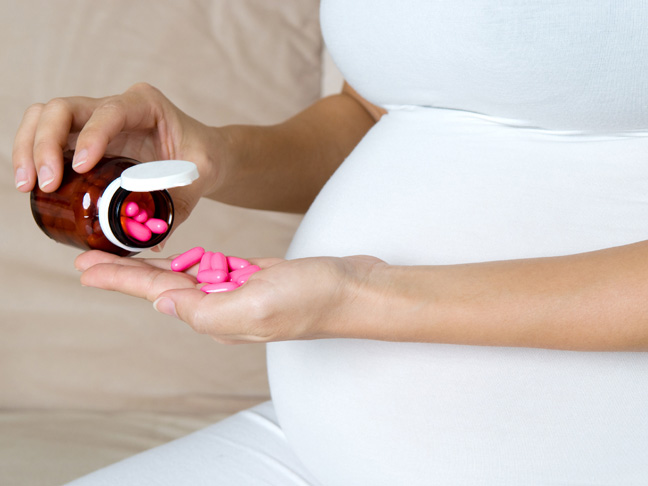Almost one-third of pregnant women have a mild iodine deficiency, according to a report from the American Academy of Pediatrics. An iodine supplement, combined with dietary intake, should bring daily iodine consumption to 220 micrograms for pregnant women and 290 micrograms for women who are breastfeeding. Good dietary sources of iodine include many dairy products, seafood, and iodized salt. Processed foods can be a problem, since these foods generally contain non-iodized salt.
Endocrinologist and professor at Boston University of Medicine Elizabeth Pearce helped to develop guidelines for the American Thyroid Association that say iodine is necessary to produce thyroid hormone to help with brain development. A severely iodine-deficient fetus or infant can suffer irreversible mental retardation.
Pearce says that a mild iodine deficiency in a mother may cause slightly decreased intelligence in her child. And iodine deficiency can also increase vulnerability to certain environmental pollutants such as the thiocyanate found in tobacco smoke.
While too much iodine can have adverse health consequences — women should not take multiple daily doses — not all prenatal vitamins contain iodine, and according to a 2009 report in the New England Journal of Medicine, some contain the nutrient at less than the recommended daily level.








